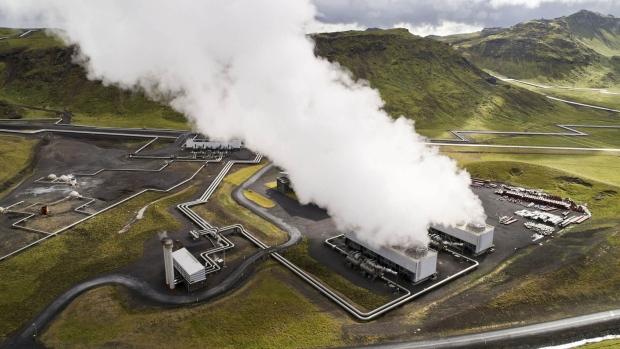In Short : Boston Consulting Group (BCG) has entered into a significant deal related to carbon removal from the air. This suggests BCG’s involvement in initiatives or projects aimed at reducing atmospheric carbon dioxide levels, contributing to climate change mitigation efforts.
In Detail : Boston Consulting Group (BCG) has signed a deal to purchase carbon dioxide removal services from Swiss startup Climeworks.
The purchase of 80,000 tons of CO2 removal makes the consulting firm the startup’s largest corporate buyer to date. The deal spans 15 years, which is the longest Climeworks has signed. The length of the deal is “a key enabler for our industry” when it comes to bankability and scalability, said Climeworks Co-Chief Executive Officer and co-founder Christoph Gebald.
The companies would not disclose a purchase price. But on average, Climeworks customers currently pay about $1,300 per ton of CO2 removal, which the startup does using machines that pull carbon from the atmosphere in a process known as direct air capture. (BCG’s research shows that DAC costs currently average $600 to $1,000 per ton.)
The world must immediately cut carbon emissions if it’s to limit global warming, but research shows that pulling CO2 from the atmosphere will also play a role, particularly for cleaning up emissions from hard-to-decarbonize sectors. That includes aviation and business travel, which is BCG’s largest source of emissions. The firm has traditionally purchased carbon offsets; those credits come from projects that that are supposed to reduce carbon emissions, like improved forestry management. That category of offsets has come under increasing scrutiny for failing to meaningfully reduce emissions. That has in part led BCG to shift its offset portfolio towards more durable and measurable carbon removal credits as part of its bid to reach net zero by 2030 and become carbon negative thereafter.
“Without carbon removal, net-zero is out of reach,” BCG’s Chief Sustainability Officer David Webb said in a statement. “It’s imperative that we start scaling carbon removal today, in particular high-quality solutions that are verifiable, additional, and permanent, to be able to meet the growing demand in the coming decades.”
DAC is still an early-stage technology with much to prove, but Climeworks is one of a few companies operating a large-scale facility today. It is also one of a few companies selected by the Department of Energy to participate in one of two federally funded DAC hubs in the US.
Yet Climeworks’ plant in Iceland has the capacity to remove just 4,000 tons of CO2 per year, far from its goal of 1 million tons annually by decade’s end. Its second plant is set to open by the beginning of next year and will have an operating capacity of 36,000 tons, which remains a drop in the bucket of CO2 emissions.
This is the second contract BCG has signed with Climeworks, following a 2021 deal to purchase an undisclosed amount of removal services over a 10-year timeframe. In June, the firm also entered a five-year agreement to purchase 40,000 tons of removal from CarbonCapture Inc., a Los Angeles-based DAC company.
Gebald compared the agreement reached with BCG to the early power purchase agreements that helped launch the wind and solar industries. “2030 will be to our industry what was 2000 to solar,” he said. “Carbon removal is the new solar.”

